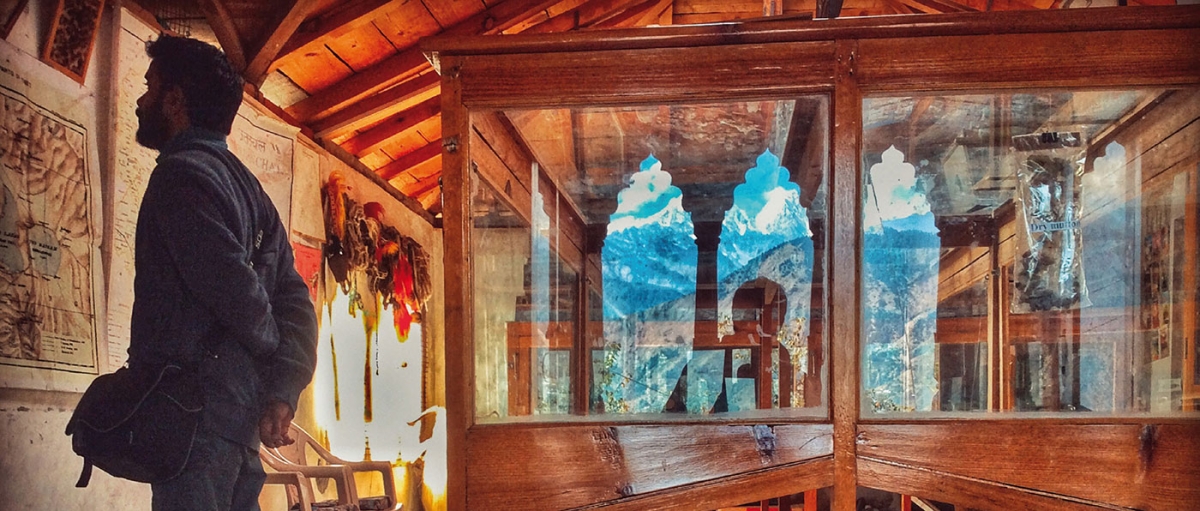Humanities across Borders: Asia and Africa in the World
<p>In 2016, IIAS announced its new programme ‘Humanities across Borders: Asia and Africa in the World’. Now that the programme’s framework is fully in place and activities have started, we would like to provide you with an update about the developments at various levels of activities on research and education, on programmatic events and tangible outcomes, and at the level of the collaborative network. The programme runs from 2017-2020 and is co-funded by The Andrew W. Mellon Foundation and the twenty-two partner institutes in Asia, Africa, Europe and the USA.</p>
Objectives and method
The objective of the Humanities across Borders (HaB) Programme is to mobilise the development of a global consortium of universities, and their local partners in Asia and Africa, interested in fostering humanities-grounded education. Its epistemological vision is that of an expanded humanities along the Asia-Africa axis of knowledge and collaboration. To this end, the programme initiates methodological, pedagogical and curricular interventions, to surpass narrow disciplinary, institutional, ideological and individualistic agendas in the production of knowledge.
The programme facilitates border-crossing meetings, workshops and other collaborative pedagogical formats, organised by its partners together with their local civil society agents and actors with the objective to shape a curricular matrix and framework for humanistic education across borders. These activities are carried out in the framework of fourteen projects, focusing on such themes as food, embodied practices, voices of dissent, language, memory and migration, in all their dynamic articulations in the world.
Developing the programme’s framework
The lead partner institutes as well as the regional Principal Investigators (PI) were identified in 2016. After that, the programme’s framework was set up in close collaboration with the PI’s. Between November 2016 and January 2017, four meetings were organised (in Leiden, Amsterdam, Delhi and Yangon) for the PI’s to meet their regional colleagues and the HaB Project Team in person, to discuss the blueprint of the grant proposal and to explore working in a cross-border and collaborative setting. These workshop-like meetings helped transform tentative plans on research and education into concrete, workable projects.
Kick-off meeting in Chiang Mai
An intensive four-day assembly was held in Chiang Mai, Thailand, organised in close cooperation with and co-funded by Chiang Mai University (CMU). It gathered seventeen Principal Investigators from all involved regions, the programme's advisors Carol Gluck and Françoise Vergès, and the full HaB Project Team.
This meeting was a quintessential step in the eventual cross-border exchange and collaboration between the various individuals and their projects. During this meeting, the PI’s presented the first version of their project plans. From the discussions, important common methodological requirements where phrased and comparative themes were identified. An important part of this meeting was a day visit to the CMU ‘sites of social engagement’, an important requirement for all programmatic research and educational projects. One of the outcomes of this meeting was the insight that in some cases the regional platform structure was not conducive to the programme’s objectives. As a result, some of the PI’s decided to move forward in a closer collaboration with project teams in other regions, depending on their thematic focus.
‘Connected Universities’ roundtable
A further meeting was organised in order to get the various institutes actively engaged in the programme. It took place during the tenth International Convention of Asia Scholars (ICAS 10) from 20-23 July in Chiang Mai, Thailand, offering a first opportunity for university officials to meet and develop a shared vision on the Humanities across Borders consortium. The roundtable discussion, entitled ‘Connected Universities, Engaged Curricula’, was attended by 22 official representatives of partner universities and 14 research team members. The meeting included break-away sessions on the themes of ranking, internationalisation, social engagement and internal dynamics, and a final plenary discussion resulted in several recommendations. A follow-up gathering to define how the partners in the consortium could concretely contribute to their shared agenda is envisioned for 2018.
The Humanities across Borders Blog
From the onset of the programme, the HaB Project Team and the Principal Investigators have deliberated about ways to facilitate the communication between partners about the developments of their respective projects. In order to share relevant documents and outputs, various means were tested. As a result of this process the HaB team developed an online blog with the support of a newly appointed content manager, who is currently assembling all the information about the people, the projects and the consortium. This blog will include the communication between the PI’s as well as an overview of the relevant activities. Initially, this blog will be developed in a closed environment; it will become public when it is fully operational.
Titia van der Maas, Programme Coordinator
